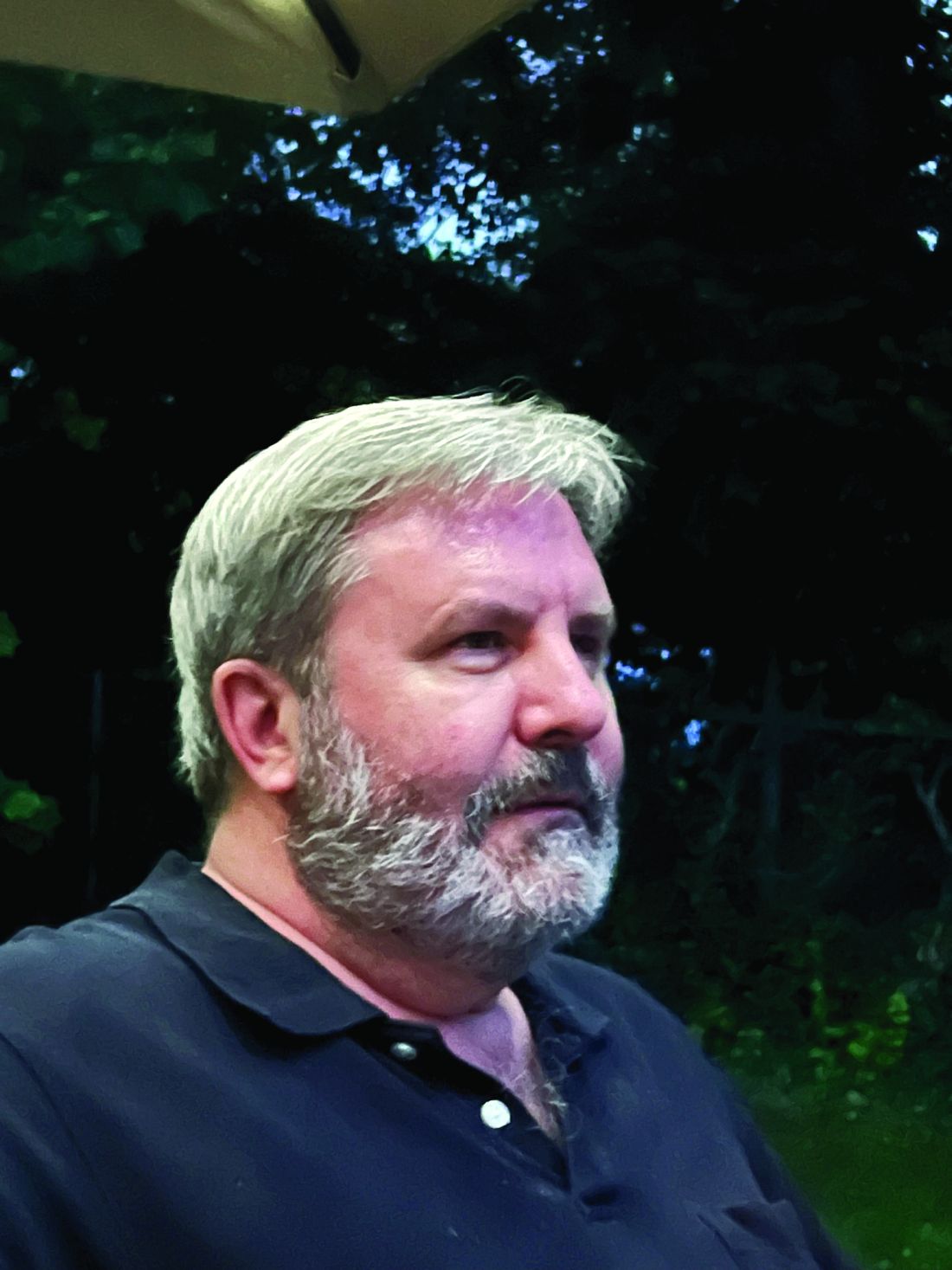User login
EDITOR’S NOTE
This year, we again focus on rare neurological diseases that have new therapies that have been recently approved as well as conditions for which the treatment pipeline is robust. Let’s hope the work of many dedicated researchers adds to the list of rare neurological diseases for which treatment is available.
This year also marks a change of leadership at NORD, our publishing partner in this annual supplement. We here at Neurology Reviews salute the leadership and accomplishments of former NORD CEO Peter Saltonstall and also welcome incoming CEO Pamela Gavin, who has spent many years in NORD leadership roles and was essential in the planning, launch, and early years of this annual supplement. I can think of no one better than Pamela Gavin to continue NORD’s mission into the future.
And finally, a recap of accolades for this annual supplement. For the second year in a row, the Rare Neurological Disease Special Report has won an Azbee award in the category of annual supplement from the American Society of Business Publication Editors. The 2023 issue won a National Gold Award and a Regional Gold Award.
—Glenn Williams, VP, Group Editor, Neurology Reviews and MDedge Neurology
A NOTE FROM NORD
Hello, and Welcome! The National Organization for Rare Disorders (NORD) is pleased to partner with Neurology Reviews to bring you the 2024 edition of the Rare Neurological Disease Report. Through this collaboration, we share cutting-edge research and insights from leading medical experts, including specialists from the NORD Rare Disease Centers of Excellence network, about the latest advances in the treatment of rare neurological conditions.
As healthcare providers, you play a key role in catalyzing advancements and bringing new hope and possibilities to the rare disease community. Your efforts can contribute to shortening the diagnostic odyssey and improving day-to-day care for people living with rare disorders in crucial ways:
Identifying patients: Healthcare providers can recognize the possible signs of a rare disease and initiate further investigation or referral to specialists. Early detection is key as it can lead to a quicker, more accurate diagnosis, better management, and improved outcomes.
Educating other physicians: Many rare diseases are not well-known or understood by the general medical community. Healthcare providers can help bridge this knowledge gap by educating other physicians about rare conditions. They can raise awareness through clinical teaching, seminars, medical literature, or continuing medical education (CME) sessions focused on rare diseases. Raising awareness and providing up-to-date information about rare diseases bolsters diagnostic and treatment capabilities within the medical field.
Providing information to patients: Once a rare disease is identified, healthcare providers can offer valuable support to patients and their families. They can provide potential treatments and management strategies. They can also connect patients with support groups, support programs, educational resources, and specialists with expertise in specific rare conditions. Clear communication and guidance on support resources can positively impact patients’ well-being, empower them to make informed decisions, and help them navigate a complex rare condition.
This issue of the Rare Disease Neurological Special Report features articles by rare disease medical experts on specific diseases with updates on clinical management. Topics include the diagnosis and management of Duchenne muscular dystrophy, the promise of disease-modifying therapies for Huntington’s disease, patient choices and cultural changes around myasthenia gravis, advances in neuromyelitis optica, and untangling chronic inflammatory demyelinating polyneuropathy. In addition, two online-only articles offer timely insights from key opinion leaders on the pros and cons of genetic testing and what clinicians need to know about newborn screening.
You will also find information about the NORD Rare Diseases and Orphan Products Breakthrough Summit. This annual event convenes thought leaders from patient advocacy organizations, industry, academia, medical and research institutions, and government to discuss critical topics facing the rare disease community.
NORD is deeply appreciative of healthcare professionals like you, who despite long hours and demanding workloads, remain committed to staying up to date on the latest medical advances for the benefit of their patients. Your dedication and hard work make a significant difference to the patients and families we serve, and your commitment does not go unnoticed. Thank you for all that you do.
—Pamela Gavin, NORD Chief Executive Officer
EDITOR’S NOTE
This year, we again focus on rare neurological diseases that have new therapies that have been recently approved as well as conditions for which the treatment pipeline is robust. Let’s hope the work of many dedicated researchers adds to the list of rare neurological diseases for which treatment is available.
This year also marks a change of leadership at NORD, our publishing partner in this annual supplement. We here at Neurology Reviews salute the leadership and accomplishments of former NORD CEO Peter Saltonstall and also welcome incoming CEO Pamela Gavin, who has spent many years in NORD leadership roles and was essential in the planning, launch, and early years of this annual supplement. I can think of no one better than Pamela Gavin to continue NORD’s mission into the future.
And finally, a recap of accolades for this annual supplement. For the second year in a row, the Rare Neurological Disease Special Report has won an Azbee award in the category of annual supplement from the American Society of Business Publication Editors. The 2023 issue won a National Gold Award and a Regional Gold Award.
—Glenn Williams, VP, Group Editor, Neurology Reviews and MDedge Neurology
A NOTE FROM NORD
Hello, and Welcome! The National Organization for Rare Disorders (NORD) is pleased to partner with Neurology Reviews to bring you the 2024 edition of the Rare Neurological Disease Report. Through this collaboration, we share cutting-edge research and insights from leading medical experts, including specialists from the NORD Rare Disease Centers of Excellence network, about the latest advances in the treatment of rare neurological conditions.
As healthcare providers, you play a key role in catalyzing advancements and bringing new hope and possibilities to the rare disease community. Your efforts can contribute to shortening the diagnostic odyssey and improving day-to-day care for people living with rare disorders in crucial ways:
Identifying patients: Healthcare providers can recognize the possible signs of a rare disease and initiate further investigation or referral to specialists. Early detection is key as it can lead to a quicker, more accurate diagnosis, better management, and improved outcomes.
Educating other physicians: Many rare diseases are not well-known or understood by the general medical community. Healthcare providers can help bridge this knowledge gap by educating other physicians about rare conditions. They can raise awareness through clinical teaching, seminars, medical literature, or continuing medical education (CME) sessions focused on rare diseases. Raising awareness and providing up-to-date information about rare diseases bolsters diagnostic and treatment capabilities within the medical field.
Providing information to patients: Once a rare disease is identified, healthcare providers can offer valuable support to patients and their families. They can provide potential treatments and management strategies. They can also connect patients with support groups, support programs, educational resources, and specialists with expertise in specific rare conditions. Clear communication and guidance on support resources can positively impact patients’ well-being, empower them to make informed decisions, and help them navigate a complex rare condition.
This issue of the Rare Disease Neurological Special Report features articles by rare disease medical experts on specific diseases with updates on clinical management. Topics include the diagnosis and management of Duchenne muscular dystrophy, the promise of disease-modifying therapies for Huntington’s disease, patient choices and cultural changes around myasthenia gravis, advances in neuromyelitis optica, and untangling chronic inflammatory demyelinating polyneuropathy. In addition, two online-only articles offer timely insights from key opinion leaders on the pros and cons of genetic testing and what clinicians need to know about newborn screening.
You will also find information about the NORD Rare Diseases and Orphan Products Breakthrough Summit. This annual event convenes thought leaders from patient advocacy organizations, industry, academia, medical and research institutions, and government to discuss critical topics facing the rare disease community.
NORD is deeply appreciative of healthcare professionals like you, who despite long hours and demanding workloads, remain committed to staying up to date on the latest medical advances for the benefit of their patients. Your dedication and hard work make a significant difference to the patients and families we serve, and your commitment does not go unnoticed. Thank you for all that you do.
—Pamela Gavin, NORD Chief Executive Officer
EDITOR’S NOTE
This year, we again focus on rare neurological diseases that have new therapies that have been recently approved as well as conditions for which the treatment pipeline is robust. Let’s hope the work of many dedicated researchers adds to the list of rare neurological diseases for which treatment is available.
This year also marks a change of leadership at NORD, our publishing partner in this annual supplement. We here at Neurology Reviews salute the leadership and accomplishments of former NORD CEO Peter Saltonstall and also welcome incoming CEO Pamela Gavin, who has spent many years in NORD leadership roles and was essential in the planning, launch, and early years of this annual supplement. I can think of no one better than Pamela Gavin to continue NORD’s mission into the future.
And finally, a recap of accolades for this annual supplement. For the second year in a row, the Rare Neurological Disease Special Report has won an Azbee award in the category of annual supplement from the American Society of Business Publication Editors. The 2023 issue won a National Gold Award and a Regional Gold Award.
—Glenn Williams, VP, Group Editor, Neurology Reviews and MDedge Neurology
A NOTE FROM NORD
Hello, and Welcome! The National Organization for Rare Disorders (NORD) is pleased to partner with Neurology Reviews to bring you the 2024 edition of the Rare Neurological Disease Report. Through this collaboration, we share cutting-edge research and insights from leading medical experts, including specialists from the NORD Rare Disease Centers of Excellence network, about the latest advances in the treatment of rare neurological conditions.
As healthcare providers, you play a key role in catalyzing advancements and bringing new hope and possibilities to the rare disease community. Your efforts can contribute to shortening the diagnostic odyssey and improving day-to-day care for people living with rare disorders in crucial ways:
Identifying patients: Healthcare providers can recognize the possible signs of a rare disease and initiate further investigation or referral to specialists. Early detection is key as it can lead to a quicker, more accurate diagnosis, better management, and improved outcomes.
Educating other physicians: Many rare diseases are not well-known or understood by the general medical community. Healthcare providers can help bridge this knowledge gap by educating other physicians about rare conditions. They can raise awareness through clinical teaching, seminars, medical literature, or continuing medical education (CME) sessions focused on rare diseases. Raising awareness and providing up-to-date information about rare diseases bolsters diagnostic and treatment capabilities within the medical field.
Providing information to patients: Once a rare disease is identified, healthcare providers can offer valuable support to patients and their families. They can provide potential treatments and management strategies. They can also connect patients with support groups, support programs, educational resources, and specialists with expertise in specific rare conditions. Clear communication and guidance on support resources can positively impact patients’ well-being, empower them to make informed decisions, and help them navigate a complex rare condition.
This issue of the Rare Disease Neurological Special Report features articles by rare disease medical experts on specific diseases with updates on clinical management. Topics include the diagnosis and management of Duchenne muscular dystrophy, the promise of disease-modifying therapies for Huntington’s disease, patient choices and cultural changes around myasthenia gravis, advances in neuromyelitis optica, and untangling chronic inflammatory demyelinating polyneuropathy. In addition, two online-only articles offer timely insights from key opinion leaders on the pros and cons of genetic testing and what clinicians need to know about newborn screening.
You will also find information about the NORD Rare Diseases and Orphan Products Breakthrough Summit. This annual event convenes thought leaders from patient advocacy organizations, industry, academia, medical and research institutions, and government to discuss critical topics facing the rare disease community.
NORD is deeply appreciative of healthcare professionals like you, who despite long hours and demanding workloads, remain committed to staying up to date on the latest medical advances for the benefit of their patients. Your dedication and hard work make a significant difference to the patients and families we serve, and your commitment does not go unnoticed. Thank you for all that you do.
—Pamela Gavin, NORD Chief Executive Officer


